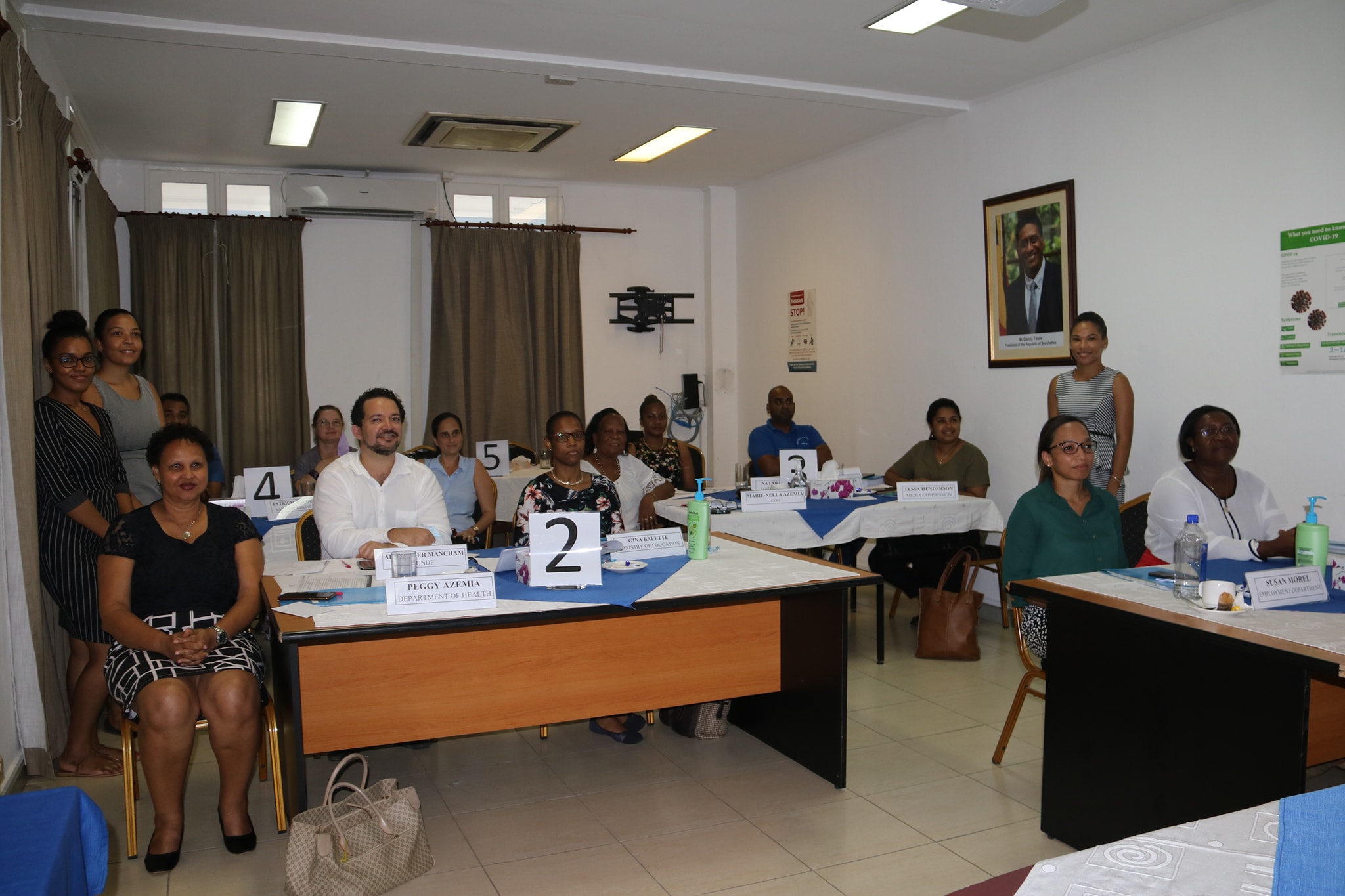The Seychelles will be presenting its Universal Periodic Review (U.P.R) National Report at the 38th session in May 2021. Therefore in response to a request from the Government of Seychelles, UNFPA, OHCHR and other UN partners have delivered a virtual three day training on the UPR to local stakeholders which has included the Seychelles Media Commission. The training has integrated Gender and Sexual and Reproductive Health and Rights to the national stakeholders in Seychelles.
The objectives of the virtual training have been to enable participants to identify and explain the types of Mechanisms in the UN Human Rights and Regional Human Rights System, apply knowledge acquired in the development of a State report for the UPR 3rd cycle of reporting in 2021; allow participants to integrate gender, SRHR and other human rights issues within UPR reports, and be able to integrate these recommendations in their reports as well as follow up actions.

Following the training participants have a better understanding if the function of a national mechanisms for reporting and follow-up, as well as create a synergy in the UPR reporting process with other national reporting mechanisms such as treaty bodies, the Sustainable Development Goals through the Voluntary National Reports and the ICPD Programme of Action.
The deadline for the National Report is February 2021, therefore the Government representatives and partners have three more months to formulate plans to implement recommendations, including gender and SRHR recommendations, from the UPR report as well as other human rights mechanisms as well as demonstrate the use of the national recommendations tracking database, prior to reporting.
The training session targeted Government representatives from various line Ministries and institutions, representatives from the National Human Rights Institution, representatives from the UN and representatives from civil society organisations.
Four of the recommendations were linked to the media and they are:
- Amend the Public Order Act to allow for freedom of assembly and remove restrictions on freedom of the press by relaxing libel laws that could impede journalists (Recommendation from Australia);
- Amend the Civil Code regarding defamation to be in line with international standards on the right to freedoms of expression and opinion (Recommendation from Botswana);
- Review its legislation in order to protect and promote the right to freedom of opinion and expression, including on the internet, also providing protection to journalists against harassment by police and other authorities (Recommendation from Brazil);
- Issue a law on freedom of the press (Recommendation from Iraq);
The UPR was launched in 2008 by the Human Rights Council (HRC) in Geneva. It constitutes a relatively new entity in the range of international human rights mechanisms and is unique since the reviews are conducted by Member States. The UPR is carried out by the HRC, which is a Charter-based body. The UPR covers the full range of human rights and provides a valuable opportunity for the realization of human rights and gender equality.
The SMC will be reporting on the four recommendations to the Ministry of Foreign Affairs.
